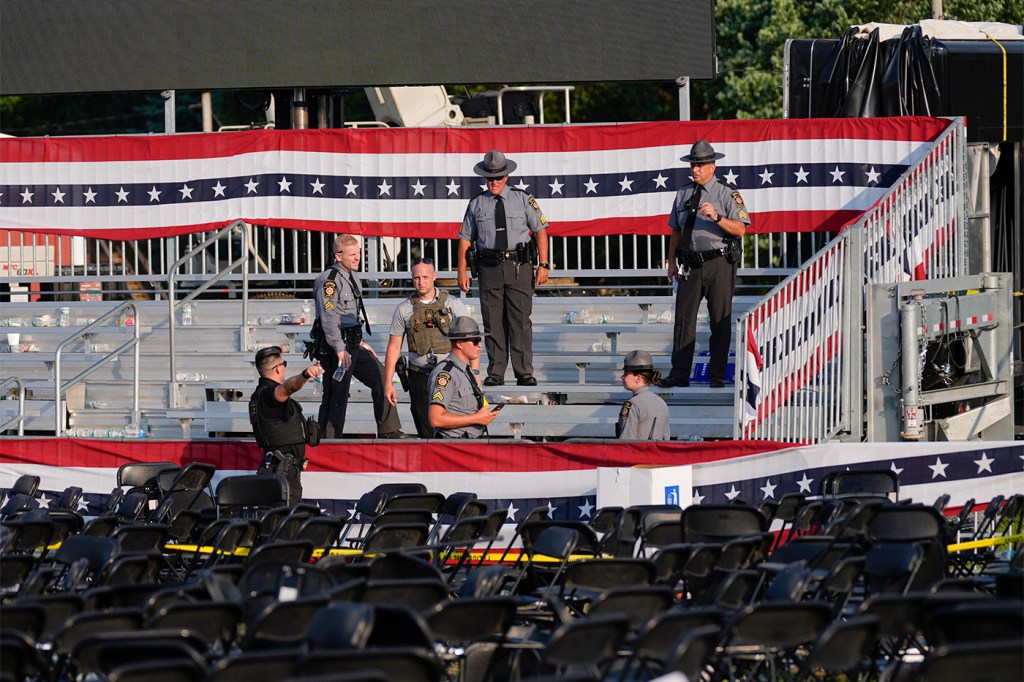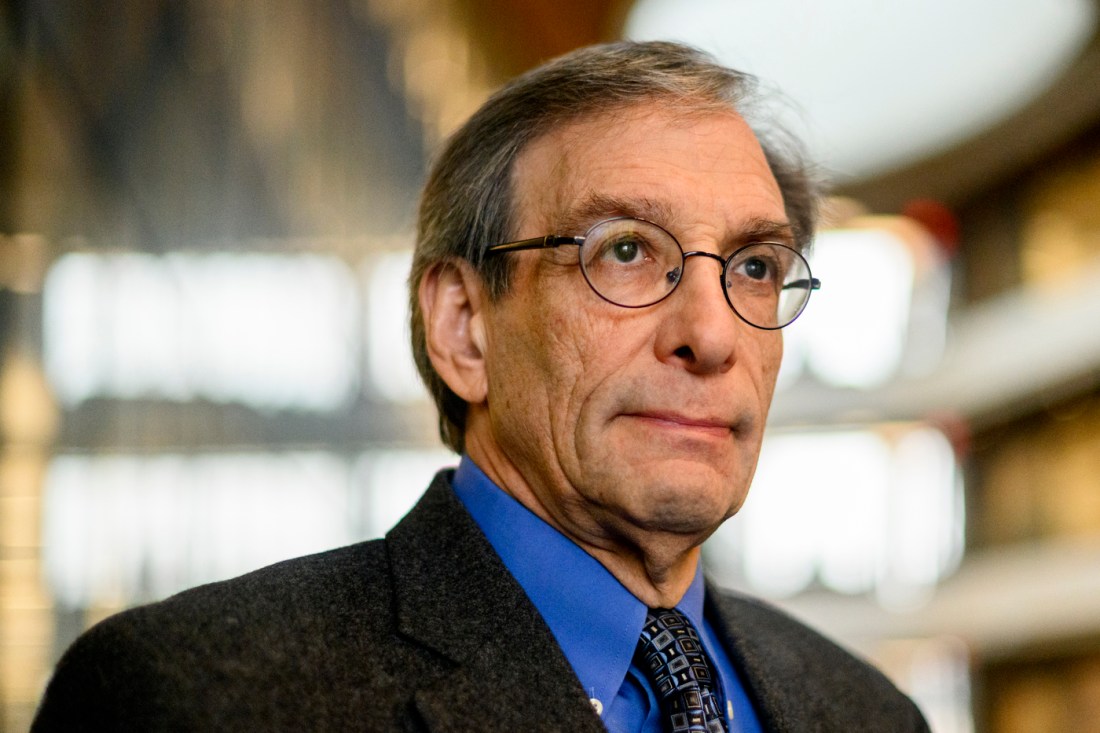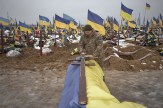Motive in Trump assassination attempt may never be discovered, Northeastern expert says
In the case of 20-year-old Thomas Matthew Crooks, who authorities say attempted to assassinate Trump, determining a motive may prove even more difficult, says James Alan Fox.

As the nation reckons with an assassination attempt on former President Donald Trump, the FBI and other law enforcement agencies overseeing the investigation into Saturday’s shooting are searching for a motive.
But a motive may never be found, according to James Alan Fox, professor of criminology, public policy and law at Northeastern, who’s spent decades studying public mass shootings. That’s because the search for a motive in many cases often amounts to, as one psychiatrist puts it, an “exercise in fruitless speculation and wasted resources.”
It’s a natural response to tragedy: the asking of why. The reasons often begin with some grievance, but the particulars — what drives a person to commit an act of violence — can be elusive, Fox says.
In the case of 20-year-old Thomas Matthew Crooks, who authorities say attempted to assassinate Trump, determining a motive may prove even more difficult, as investigators have yet to discover any social media handles or writings linked to him. His political leanings are similarly hard to discern — he’s a registered Republican, but made a small donation to a Democratic cause.
Northeastern Global News talked to Fox in the wake of the shooting, which took place during a Trump rally in Butler, Pennsylvania on Saturday. His comments have been edited for brevity and clarity.

We’ve spoken before about the search for a motive in mass shootings. To start off, what do we know about what motivates people to carry out these acts?
We should set aside family mass shootings, which represent about 45% of the cases. I would also set aside the gang-related, drug-related cases, what looks to be the case in, for example, the mass shooting over the weekend in Alabama, which was a drive-by shooting. So we’re now only talking about public shootings, which can be indiscriminate, or they can have a particular target, with other people killed in the process.
Featured Posts
There are various motives. One that stands out, of course, are shootings motivated by hate. Whether, for example, the synagogue shooting in Pittsburg, or the Walmart shooting in El Paso, or the church shooting in Charlestown, South Carolina. You see antisemitic, anti-immigrant and anti-Black cases, but there have also been gender-related cases. There was a case in Montreal — Marc Lépine, who killed 14 women in a classroom at an engineering school. There are many different elements of hatred, and those are certainly prominent in many of the cases we see today.
If you feel that someone is going after a candidate, you think they are, in a way, a threat. In the same way that white supremacists think that Jews are a threat — the whole idea of replacement theory, for example — they see it as a defensive move. It’s not all that dissimilar to a suicide bomber, who recognizes that they are going to die, but the motive is to fight back against those who are perceived as the enemy.
There are also assailants who are looking for some level of infamy or celebrity, which is attainable depending on the nature, setting and victims of the attack. Clearly an assassination attempt, whether successful or not, against a presidential candidate does bring a lot of attention to that individual. Oftentimes, the assailant has a point of view that they want expressed. Sometimes they’ll have an information trail on social media or more extensive writings. Individuals who perceive that the world is unfair, corrupt, that they are being mistreated, and those individuals will often choose a place where they know there will be a lot of people under their gun, whether it be a church, school, shopping mall or restaurant. It’s a way to punish society for the poor hand they’ve been dealt. Mass shooters typically see themselves as victims of injustice.
Do you think investigators will find a motive in this case?
Frankly, they may never be able to do so. We don’t always identify the reasons. Consider Stephen Paddock, the Las Vegas shooter, who killed 60 people and injured hundreds of others at a concert. The authorities conducted a thorough and detailed investigation that went on for months, yet they never could determine a motive.
The fact that [Crooks] was a Republican who donated to a Democratic cause makes it a little bit ambiguous, although there are Republicans who are anti-Trump, of course. Maybe he had a preference for President Joe Biden, who knows. But I think that’s a very weak piece of evidence. There are lots of people who have donated $15 to various political causes.
But what we do know is that there have been all sorts of threats in our society, and that the political environment is awfully polarized. People are even afraid to discuss politics with their family members for the risk of getting into a heated argument or fight. More than his motive, it’s the context. The political climate, at the moment, is just horrendous.
Does the fact that it was an attempt on the life of a former president change anything, in your mind, when thinking about this incident as a mass shooting? In other words, if his politics were the motive?
No, because politics is just a general point of view, in the same way that being a white supremacist is a point of view, or being anti-gay is a point of view. It’s just a bit more global. But the idea that Biden is somehow responsible because he’s said things like ‘Trump has to be stopped’ — apparently, he used some unfortunate metaphors like ‘bull’s-eye’ — that is preposterous. He meant it as stopping Trump with ballots, not bullets. And anyone who believed that this president, who is strongly pro-gun control, would support the idea of shooting anyone is absurd; and any rational individual would know that.
Politics often involves some language that’s overly strong, but figurative. Keep in mind, also, that Trump used rhetoric on Jan. 6, like ‘fight like hell.’ Politicians want to sound like they’re strong, fearless, powerful. Obviously, it’s not a good idea to use metaphors that reflect violence, but any rational individual would know that they’re speaking in metaphors. I haven’t seen any evidence that Crooks was of a state of mind where he would misperceive something like that. Unless there emerges any evidence at all that he saw Biden’s words as a mandate, I think it’s reckless to suggest that Biden is responsible.
Reporting suggests the shooter was killed shortly after firing at Trump. He must have known that this was a suicide mission. Is it fair to say that he [Crooks] was prepared to die?
There are some shooters who are prepared to die and then they back out when it comes down to it. There was a school shooter in Springfield, Oregon, who had a bullet reserved for himself; but when it came time to use it, he just couldn’t do it. So he was arrested. There’s a high percentage of mass shooters who take their own lives, or are killed by police or, occasionally, by armed citizens. But they are prepared to die.
Are all individuals who carry out these crimes unwell?
No. The percentage who are schizophrenic or psychotic is rather small, around 10%. Another large group are depressed; their lives aren’t going well for them. People who are happy with their lives don’t commit a mass killing. But it takes a certain amount of clear-headedness to go through the planning processes involved to carry out an act like this. Someone who is seriously mentally ill and very confused would have a hard time doing that.











